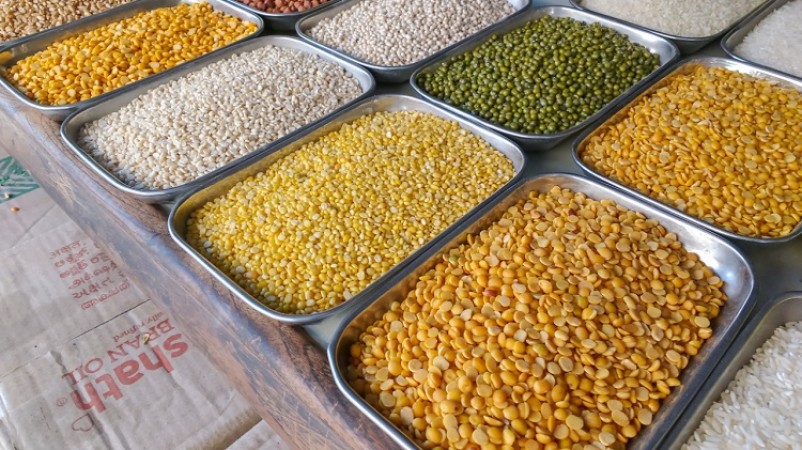
New Delhi: In an effort to meet the rising demand for pulses in the domestic market, the central government has announced its decision to release tur dal from the national buffer stock. This strategic move aims to ensure a steady supply of tur dal until the imported stocks arrive and stabilize the market.
According to a statement released by the food ministry on Tuesday, the National Agricultural Cooperative Marketing Federation (NAFED) and the National Cooperative Consumers Federation (NCCF) have been instructed to conduct online auctions among eligible millers. This will enable the augmentation of the existing stocks, allowing for the efficient production of finished tur dal to meet the consumers' requirements.
Buffer stocks are a vital measure taken by the government to manage unforeseen circumstances and counter sudden surges in commodity prices. In line with this objective, on June 2, 2023, the Government invoked the Essential Commodities Act, 1955, to impose stock limits on tur and urad. The aim was to discourage hoarding, curb unscrupulous speculation, and enhance affordability for consumers.
Under the current order, stock limits have been set for tur and urad until October 31, 2023, applicable to all states and Union territories. Wholesalers are subject to a limit of 200 tonnes, while retailers are restricted to 5 tonnes. Each retail outlet can store up to 5 tonnes, and big chain retailers can maintain up to 200 tonnes at their depot. As for millers, they are required to limit their stocks to the last 3 months of production or 25% of their annual installed capacity, whichever is higher. Additionally, these entities must declare their stock position on the relevant departmental portal, as mandated by the order.
The central government has emphasized that state governments are closely monitoring the prices within their respective jurisdictions and thoroughly examining the stock positions of entities holding stocks. Strict actions will be taken against those found to be violating the stock limits order. India, being a significant consumer and producer of pulses, relies on imports to fulfill a portion of its consumption needs. Chana, Masur, urad, Kabuli chana, and tur are the primary pulses consumed in the country, and the government's measures aim to ensure their availability and affordability for the people.
Gold Prices May Experience Short-Term Dip Correction
Rupee Strengthens by 7-ps, Closing at 82.02 Against US Dollar